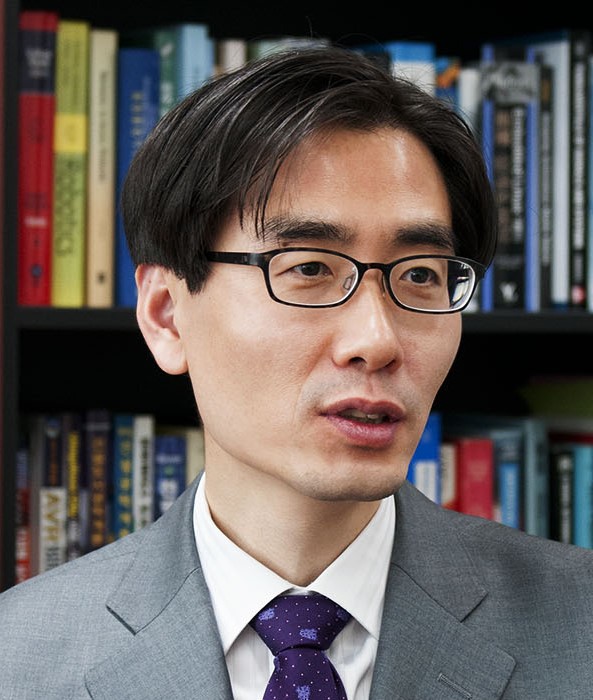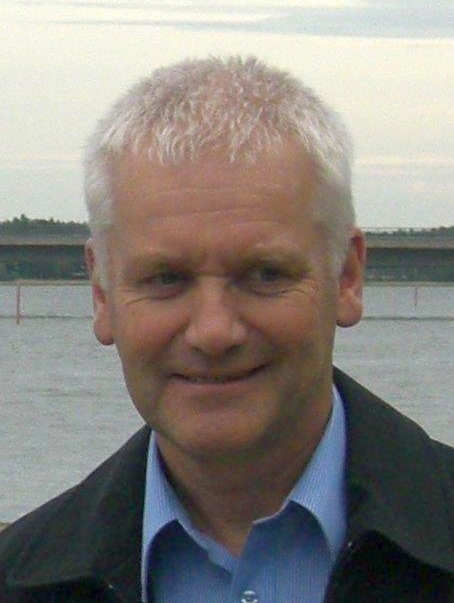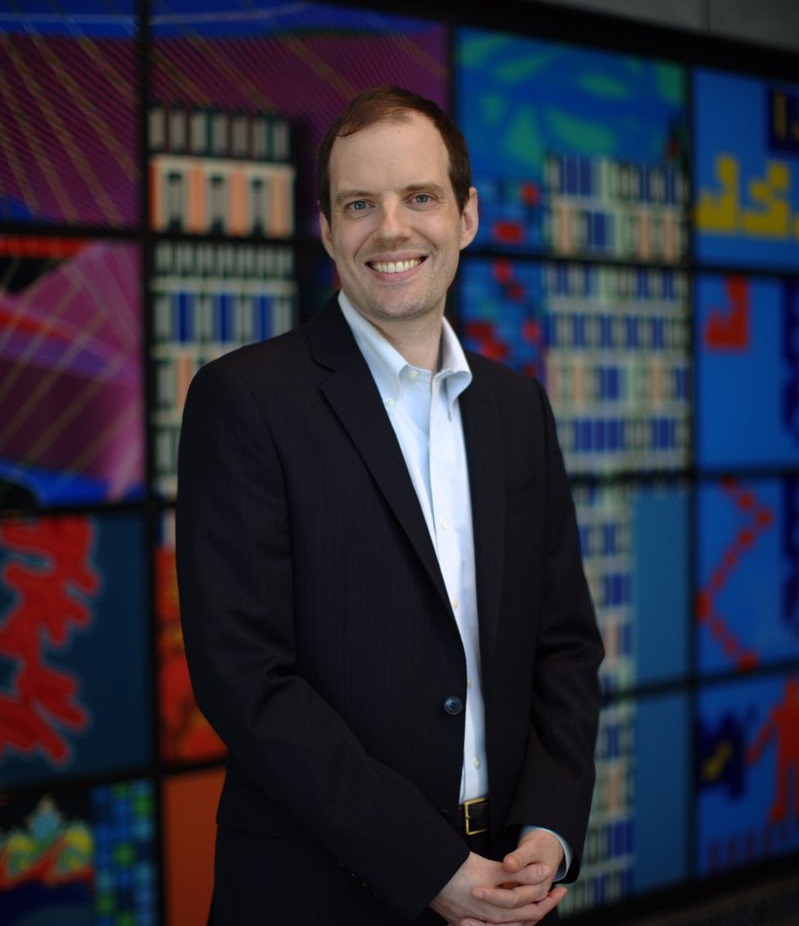
Speaker: Hyun Myung (Korea Advanced Institute of Science and Technology)
Title: Urban Robotics for Smart Cities
Abstract: In this talk, the core technologies and their implementations to provide various services in the smart city will be introduced, mainly focusing on localization, autonomous navigation, and monitoring technologies. For robot navigation, some researches including wireless and vision-based SLAM (Simultaneous Localization And Mapping), and underground localization will be discussed. For Structural Health Monitoring (SHM), vision-based SHM and a wall-climbing drone for SHM will be introduced. For environmental robotics, JEROS (Jellyfish removal robot), oil-spill protection robot, and green algae removal robot will be introduced.
Hyun Myung received the B.S., M.S., and Ph.D. degrees in Electrical Engineering from Korea Advanced Institute of Science and Technology (KAIST), Daejeon, Korea, in 1992, 1994, and 1998, respectively. He was a senior researcher with Electronics and Telecommunications Research Institute (ETRI) from 1998 to 2002; CTO and director of digital contents research lab. with Emersys Corp. from 2002 to 2003; and a principle researcher with Samsung Advanced Institute of Technology at Samsung Electronics from 2003 to 2008. Since 2008, he is an associate professor in the Department of Civil and Environmental Engineering at KAIST. He is also an adjunct professor in Robotics Program at KAIST. His research interests include robot navigation, SLAM (simultaneous localization and mapping), gesture recognition, structural health monitoring using robotics, machine learning, deep learning, and swarm robots. He is a senior member of IEEE and ICROS (Institute of Control, Robotics, and Systems) since 2015. He has served as a general chair of Int’l Conf. on RiTA (Robot Intelligence Technology and Applications) 2017 and program chairs of many international conferences. He is the co-Editors-in-Chief of Int’l Journal of ARR (Advances in Robotics Research) since 2017. His research was selected as one of the KAIST’s Top 10 research accomplishments in 2015. He received IROS Academic Award from ICROS (Institute for Control, Robotics, and Systems) in 2016. He is also a recipient of many best paper awards including the Best Robot Vision Paper Award from Asian Federation of Computer Vision (AFCV) in 2015.
Speaker: Dr. Ian Woodhead (Lincoln Agritech Ltd, Lincoln University)
Title: Sensors for Agritech
Abstract: Sensors and agritech are natural companions. As pressure builds for greater productivity and sustainable production, the role of sensors in the agricultural and environmental spaces is becoming more important. Sensing techniques in use for agriculture include large tracts of the electromagnetic spectrum, sonics, contact sensors, and their variants. Increasingly, sensor fusion, sensor arrays and smart post processing including artificial intelligence is being used to increase the capability of sensing systems and to extract higher quality information from sensor data.
This talk will describe the sensing landscape as commonly applied to agriculture and the environment, and provide examples of current practice. It will also look forward, to new sensing techniques and data analysis, and how these may lead to more efficient, productive and sustainable agricultural production.
Dr Ian Woodhead is Chief Scientist at Lincoln Agritech Ltd, Lincoln University, New Zealand and manages the technology group. His main interests are focused on measurement of the broadband dielectric properties of composite materials, physical measurements using microwave and mm waves, moisture distribution measurement, and high speed electronics. Much of his work is directed towards agricultural and environmental sensing.
Ian has published 25 refereed and 33 non-refereed papers, has 3 patents, and delivered numerous industry reports, workshops and invited presentations, and is recipient of the 2017 Scott medal from Royal Society Te Aparangi for advancing the theory and measurement of propagating electromagnetic fields and measurement of the dielectric properties of composite materials. He has led many research projects, ranging from in-industry development to market distant research. He is a member of IEEE and the AP, IMS and MTT chapters, past chair of IEEE IMS New Zealand, member of the Science for Technical Innovation National Science Challenge management team and leader of the Agricultural and Environmental Technologies Portfolio, chair of New Zealand Robotics Automation and Sensing group and of the Electronics Institute Canterbury, member of IEEE Technical Committee on Environmental Measurements (TC18), board member of the Centre for Soil and Environmental Quality, Lincoln University, member of University of Auckland Return on Science Agritech and Foodtech Investment Committee, editorial board member of Biosystems Engineering (Elsevier). Ian is a regular advisor and referee for NZ Ministry of Business, Innovation and Employment, the French National Research Agency and a technical/organising committee member and session chair of IEEE I&M, SAS, ISEMA, ICST and TDR international conferences.


Speaker: Justin Cappos (New York University)
Abstract: Due to their omnipresence, mobile devices such as smartphones could be tremendously valuable to researchers. However, since research projects can extract datavabout device owners that could be personal or sensitive, there are substantial privacy concerns. Currently, the only regulation to protect user privacy for research projects is through Institutional Review Boards (IRBs) from researchers’ institutions. However, there is no guarantee that researchers will follow the IRB protocol. Even worse, researchers without security expertise might build apps that are vulnerable to attacks. In this work, we present a platform, Sensibility Testbed, for automated enforcement of the privacy policies set by IRBs. Our platform enforces such policies when a researcher runs code on mobile devices. The enforcement mechanism is a set of obfuscation layers in a secure sandbox, that can be customized for any level of IRB compliance, and can be augmented by policies set by the device owner.
Justin Cappos is a professor in the Computer Science and Engineering department at New York University, whose research focuses on solving practical security problems in production software.
His research advances are adopted into production use by Docker, git, Python, VMware, automobiles, Cloudflare, Digital Ocean, and most Linux distributions. His Uptane project is used for secure over-the-air updates for a substantial number of new cars. His TUF project, which focuses on secure software distribution, was recently adopted by the Linux foundation and was the first cloud security technique standardized. Due to the practical impact of his work, Justin was named to Popular Science's Brilliant 10 list in 2013.
